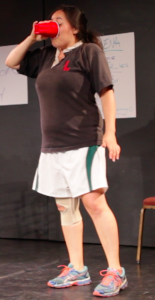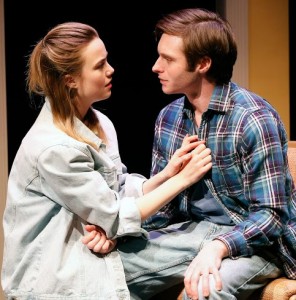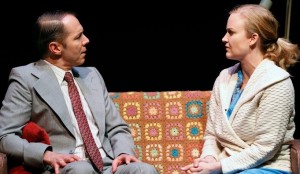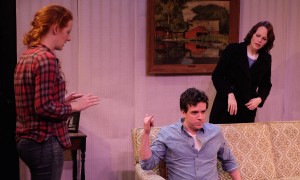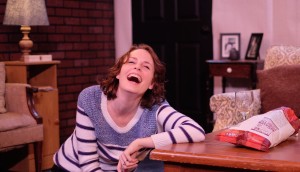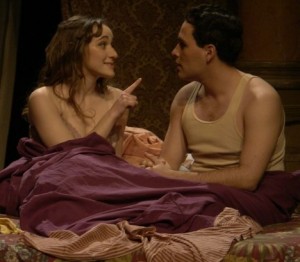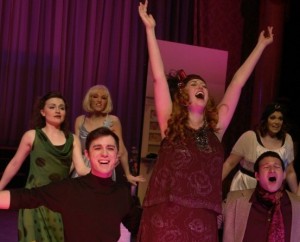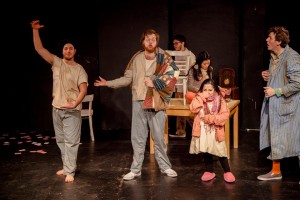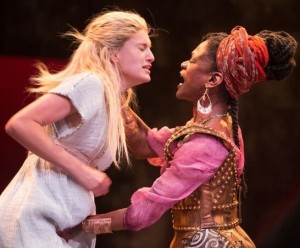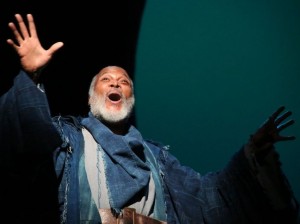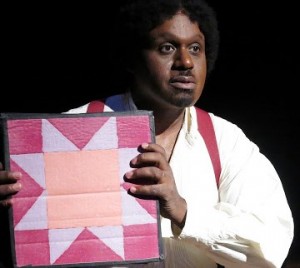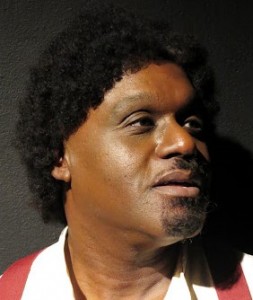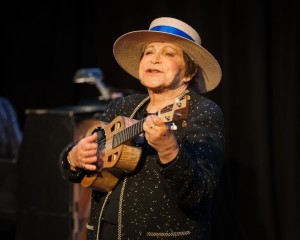As the final performance of the month-long FRIGID New York at the Kraine Theater, the autobiographical one-woman show "With You!" was an uplifting crescendo to a powerful festival. With You!, written and performed by Una Aya Osato and directed by Nelson T. Eusebio III, starts out as a peppy, quirky coming-of-age story of a young awkward athlete gaining her confidence in her sexuality and herself through college rugby. While Osato energetically transports us through her four years of college rugby, it is easy to see how important these growing pains are to discovering who we really are, what really matters to us, and what's important in the world outside ourselves. As Osato shares her story and how team sports helped her in her self quest, we are reminded that we are a product of our experiences.
Osato is a fireball of electricity as she jumps out in her gym clothes and hypes up all theatergoers. The audience literally feels like they are in the bleachers during the game as she runs, jumps, rolls, and bounces back and forth from characterizations of herself and her teammates. Eusebio, as Osato’s director, knows his performer well and sets her free. She fluidly leaps back and forth acting out the various plays of the game and creating the drama and excitement of winning. The audience can’t help but high five with Osato and cheer her realization of her own power.
As Osato playfully explains the meaning of the rugby songs at the after-party, she also reveals its significance in her social and sexual development as a woman. Osato has the comedic physical talent of a Lucille Ball as she pops from her awkward self to the various girls she is attracted to on the team. Eusebio’s direction allowed her to dance from each very specific character to her own younger self who is left trying to figure out the rules of the game and life.
Particularly humorous was her interpretation of her budding relationship with one of the more seasoned players who offers her advice on love. Osato’s talent is her ability to reveal the deeper emotional issues by how she builds the physical life of her characters. As she shares her story, she also reminds the audience on the importance of creating early bonds in friendship. And just like the rest of us, it is not until heartbreak and isolation that she really comes of age.
The piece ends with a more mature, confident woman returning to her alma mater to encourage the young athletes of tomorrow. As she reflects back with the wisdom of hindsight, she shares the lessons she really learned during that vulnerable time of development when she discovered her identity through team sports. She learns we must experience the struggles of love and identity to be able to bring about positive change in the world.
While the festival is over, FRIGID NY sponsors eight festivals a year. Visit http://www.horsetrade.info/frigid-festival to learn more about the festival's various events. Una Aya Osato can be seen in various venues across the city and the country and other “Una Happenings” can be found on her website, http://www.unaosato.com. For more information about upcoming events at The Kraine Theater (85 East 4th St. between 2nd and 3rd Aves.) in Manhattan, visit http://newyorkcitytheatre.com/theaters/krainetheater/theater.php.






